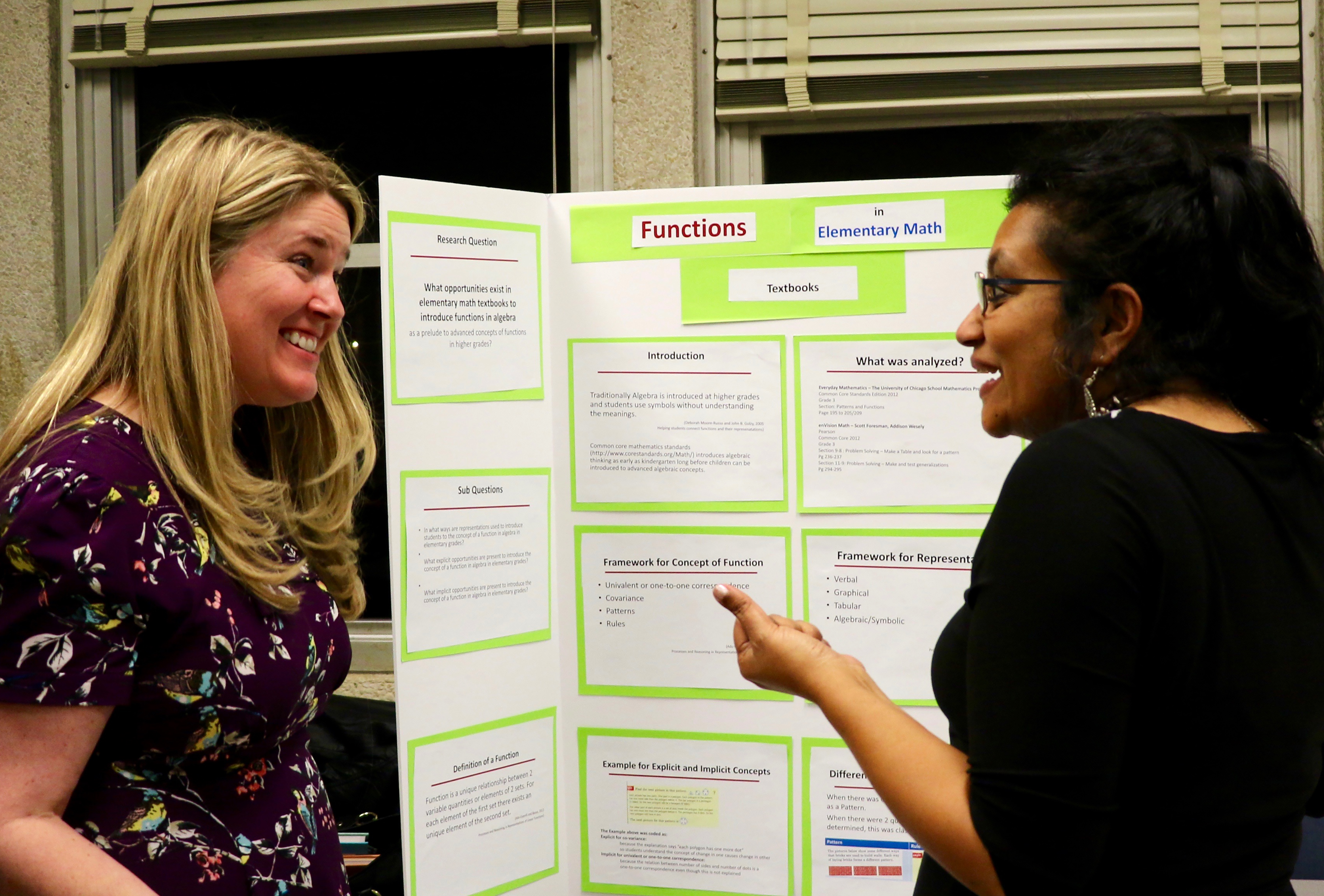Math Ed professor to study mathematics motivation and engagement

Amanda Jansen will study mathematics motivation and engagement
January 6, 2018
When children are young, they are mathematically curious all of the time. We hear them challenging each other to count to the highest number, chatting about the concept of infinity, and identifying patterns in games that ask them to “pick the item that doesn’t belong.” As they progress through school, however, data shows that many children grow less interested in math. Math becomes scary, mysterious, or simply “not for them.”
With a new $1,463,636 grant from the National Science Foundation, Amanda Jansen, professor in the University of Delaware’s School of Education, and colleague James Middleton of Arizona State University have begun their Secondary Mathematics in-the-moment Longitudinal Engagement Study (SMiLES). Through this longitudinal study, Jansen and Middleton will examine teaching practices and student motivation to learn in the ninth- and tenth-grade mathematics classroom. “This study is set in high schools because, at this time in children’s lives, they’re making decisions about their identities. ‘What’s my potential career path? What’s my potential college major? How much math will I have to take in that major?’ ” said Jansen. “One of the aspects of this project is trying to understand the instructional environments that motivate and engage students, starting in ninth grade.” While some researchers understand motivation and engagement in terms of personality traits, SMiLES will focus on describing the instructional practices that encourage student participation, drive, and interest. Prior research has shown, for example, that students are more motivated and engaged when teachers create a classroom culture of active learning, where effort and understanding are valued as much, if not more, than test scores. Over the next three years, Jansen and Middleton will follow ninth and tenth-grade students in Delaware and Arizona, with plans to observe 24 classes this year and 60 classes next year on a monthly basis. Using an innovative methodology called the “Experience Sampling Method,” tailored specifically for mathematics , they will be able to study engagement in the moment, by asking students to self-report their level of motivation and engagement at different time points in the class period. “Though people might say ‘I generally don’t feel confident in math’ or ‘I’m usually not interested,’ our attitudes about math are actually very specific,” Jansen said. “You often hear people say that ‘it was right around fractions where I started having different feelings about math,’ or ‘I really like geometry, but I don’t like algebra.’ In this method, you start by asking teachers about their practices, and then you ask kids about their level of engagement related to that specific math problem, activity, or class structure. This way, we can get a better read of their engagement in context.” The study is also unique in its large-scale focus on ninth- and tenth-grade classrooms across two states. The results from this work will inform future professional development sessions for teachers, who can apply what Jansen and Middleton learn in own their mathematics classrooms. “When I work with teachers, I view them as partners in my learning and their learning,” said Jansen. “In the short term, the teachers that participate in the study will also pilot a professional development session based on what we’re learning. As partners, we look forward to receiving feedback from them about whether our descriptions of engagement make sense.” As a former seventh- and ninth-grade math teacher from the Phoenix area, Jansen personally also looks forward to the launching of a study set in the geographic region of her former home in Arizona and in her current home in Delaware.



